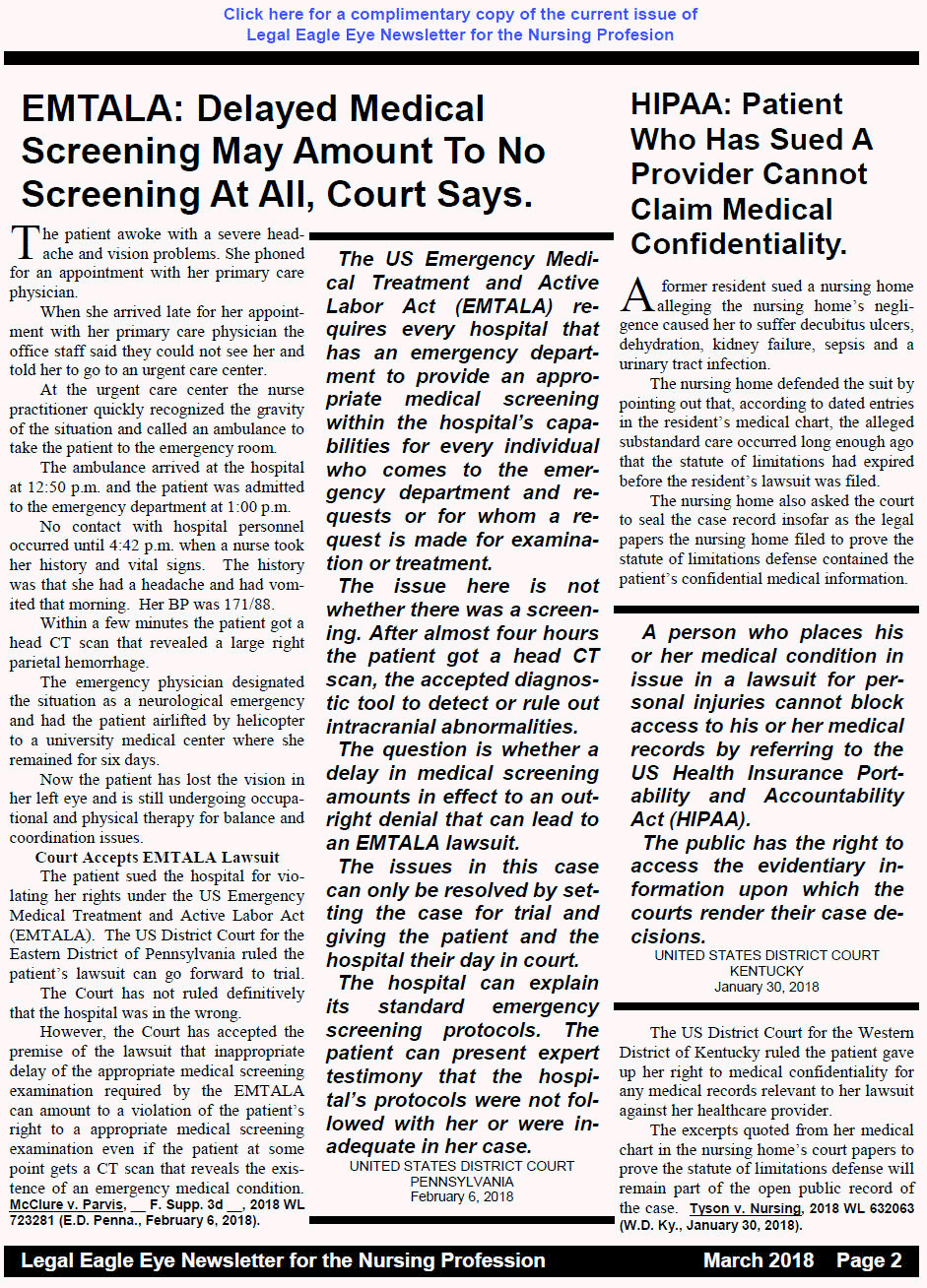
The US Emergency Medical Treatment and Active Labor Act (EMTALA) requires every hospital that has an emergency department to provide an appropriate medical screening within the hospital's capabilities for every individual who comes to the emergency department and requests or for whom a request is made for examination or treatment.
The issue here is not whether there was a screening. After almost four hours the patient got a head CT scan, the accepted diagnostic tool to detect or rule out intracranial abnormalities. The question is whether a delay in medical screening amounts in effect to an outright denial that can lead to an EMTALA lawsuit.
The issues in this case can only be resolved by setting the case for trial and giving the patient and the hospital their day in court. The hospital can explain its standard emergency screening protocols. The patient can present expert testimony that the hospital's protocols were not followed with her or were inadequate in her case.
UNITED STATES DISTRICT COURT PENNSYLVANIA February 6, 2018The patient awoke with a severe head-ache and vision problems. She phoned for an appointment with her primary care physician.
When she arrived late for her appointment with her primary care physician the office staff said they could not see her and told her to go to an urgent care center. At the urgent care center the nurse practitioner quickly recognized the gravity of the situation and called an ambulance to take the patient to the emergency room. The ambulance arrived at the hospital at 12:50 p.m. and the patient was admitted to the emergency department at 1:00 p.m.
No contact with hospital personnel occurred until 4:42 p.m. when a nurse took her history and vital signs. The history was that she had a headache and had vomited that morning. Her BP was 171/88. Within a few minutes the patient got a head CT scan that revealed a large right parietal hemorrhage.
The emergency physician designated the situation as a neurological emergency and had the patient airlifted by helicopter to a university medical center where she remained for six days. Now the patient has lost the vision in her left eye and is still undergoing occupational and physical therapy for balance and coordination issues.
The patient sued the hospital for violating her rights under the US Emergency Medical Treatment and Active Labor Act (EMTALA). The US District Court for the Eastern District of Pennsylvania ruled the patient's lawsuit can go forward to trial.
The Court has not ruled definitively that the hospital was in the wrong. However, the Court has accepted the premise of the lawsuit that inappropriate delay of the appropriate medical screening examination required by the EMTALA can amount to a violation of the patient's right to a appropriate medical screening examination even if the patient at some point gets a CT scan that reveals the existence of an emergency medical condition.
McClure v. Hospital, __ F. Supp. 3d __, 2018 WL 723281 (E.D. Penna., February 6, 2018).